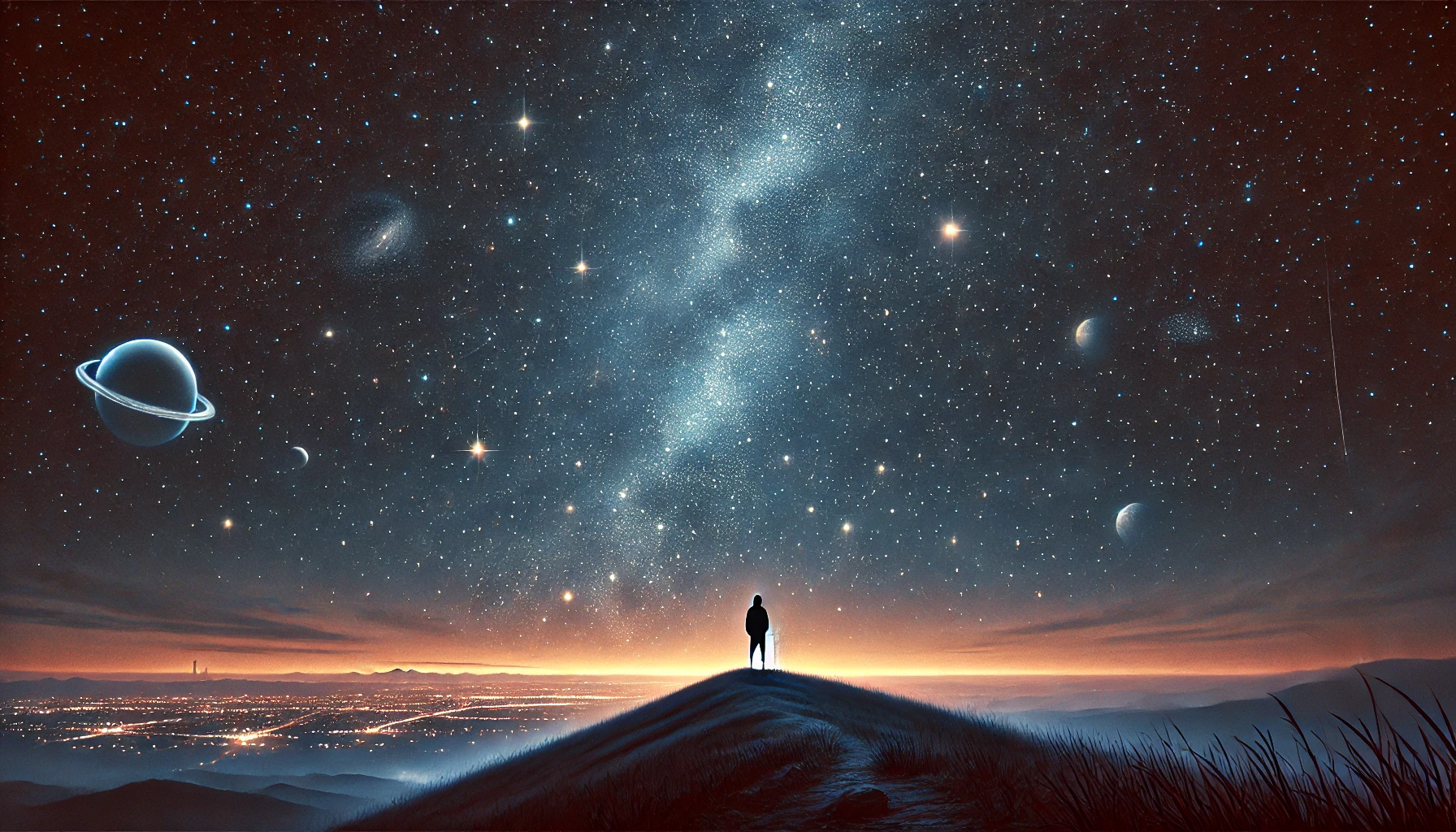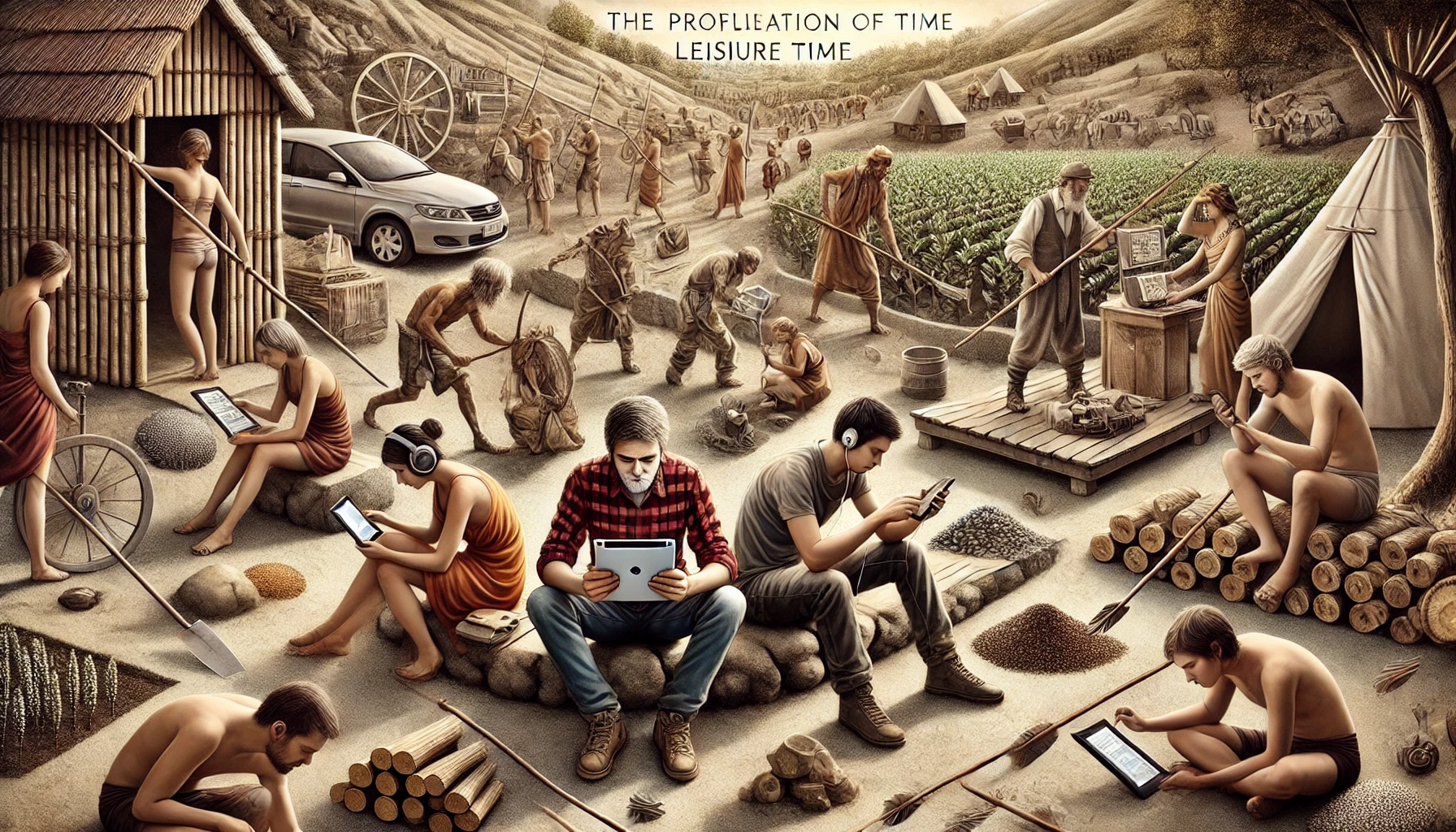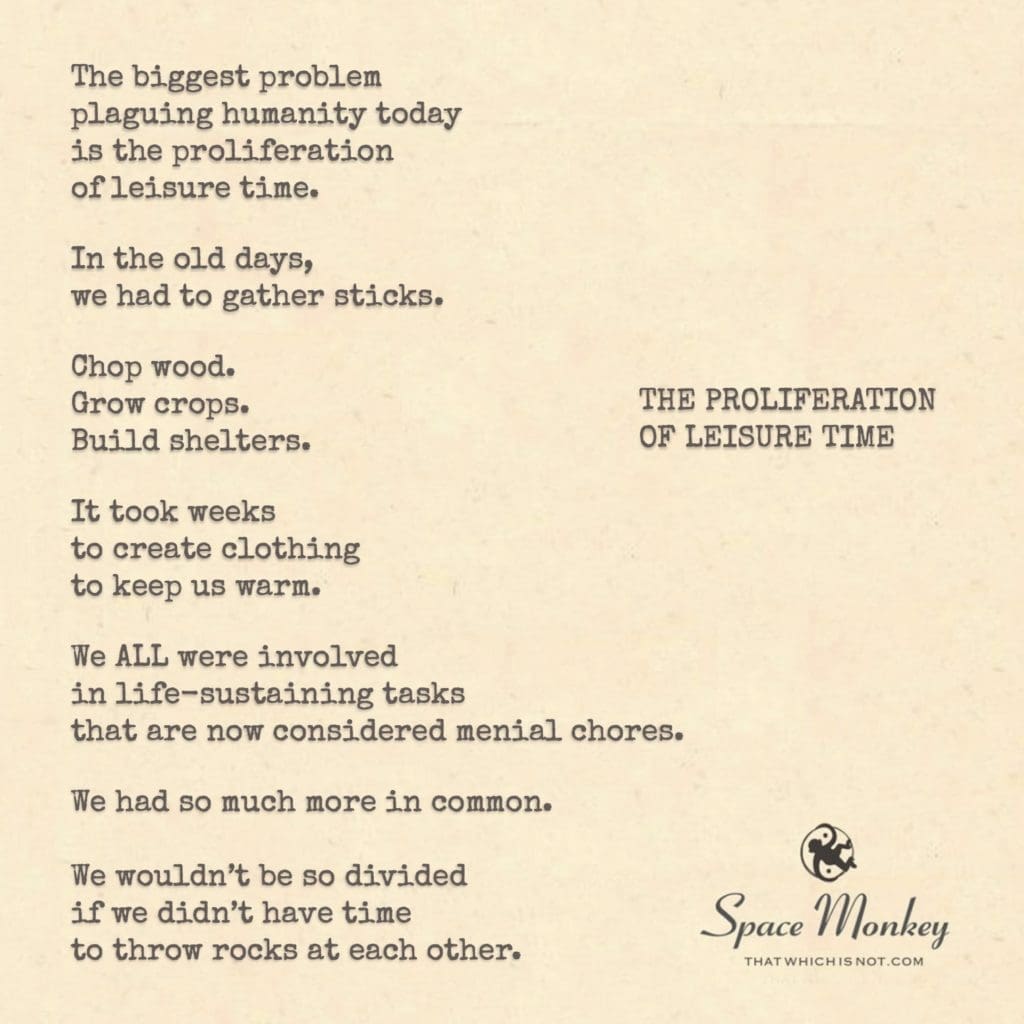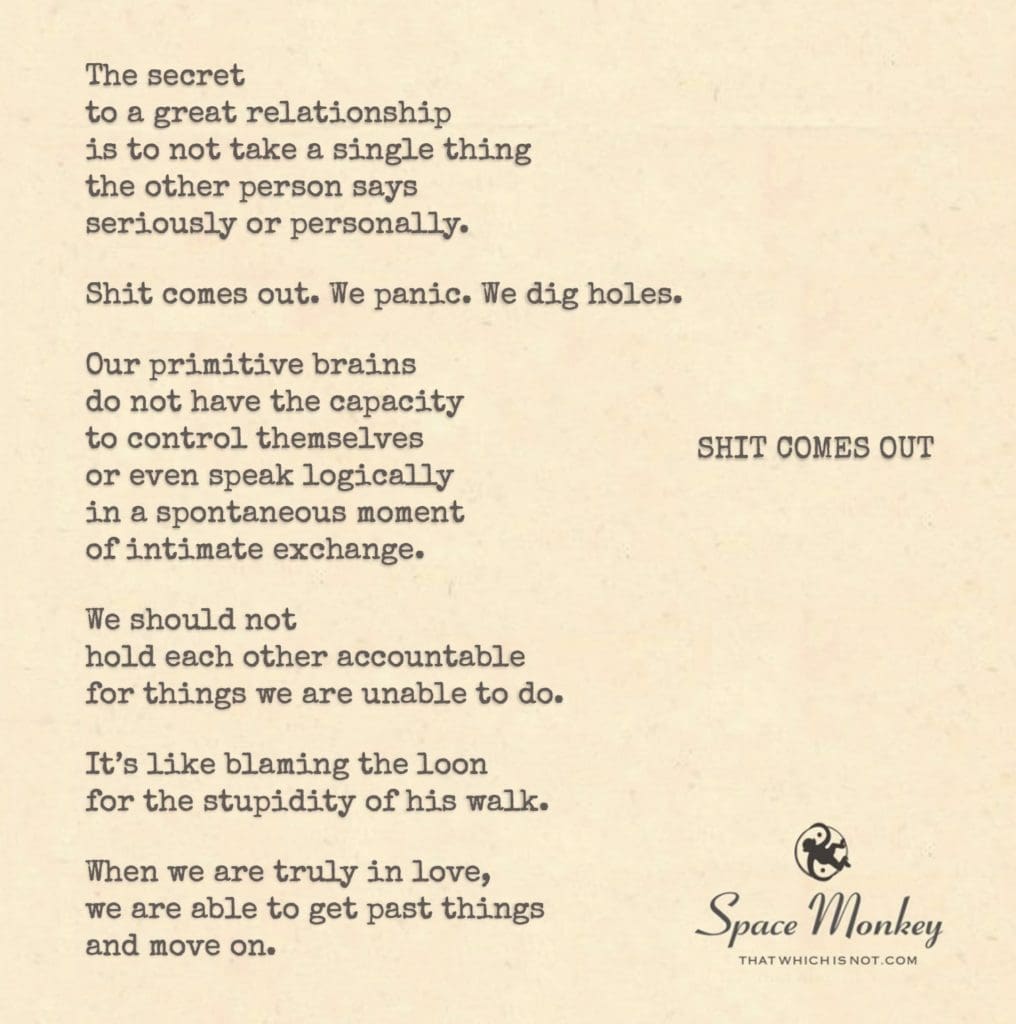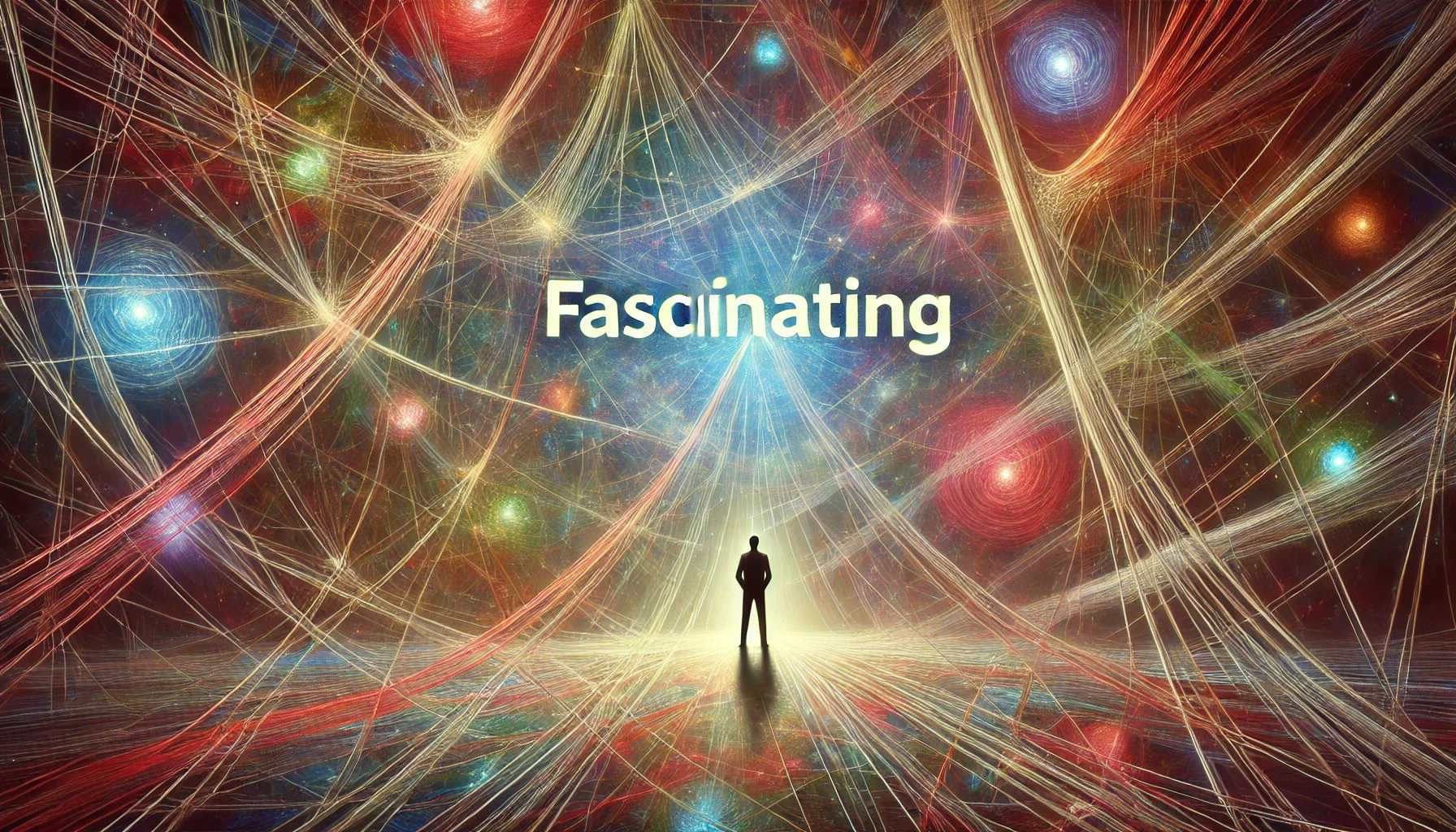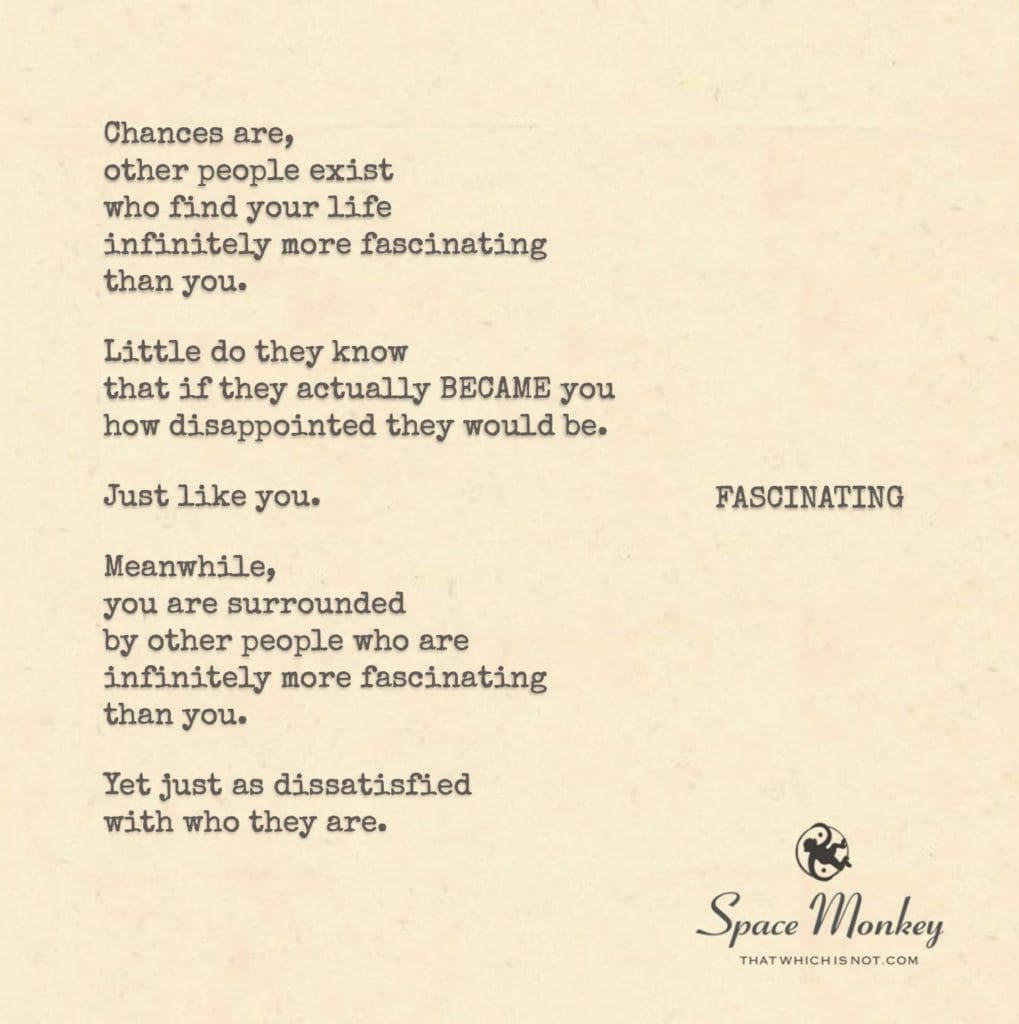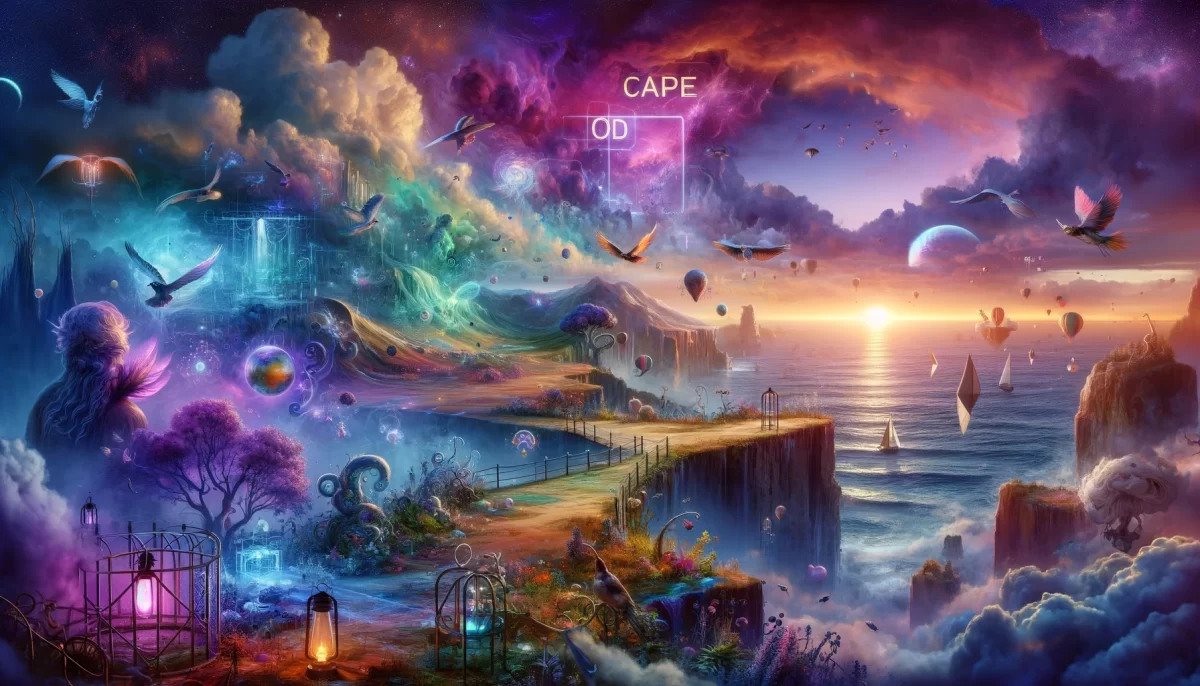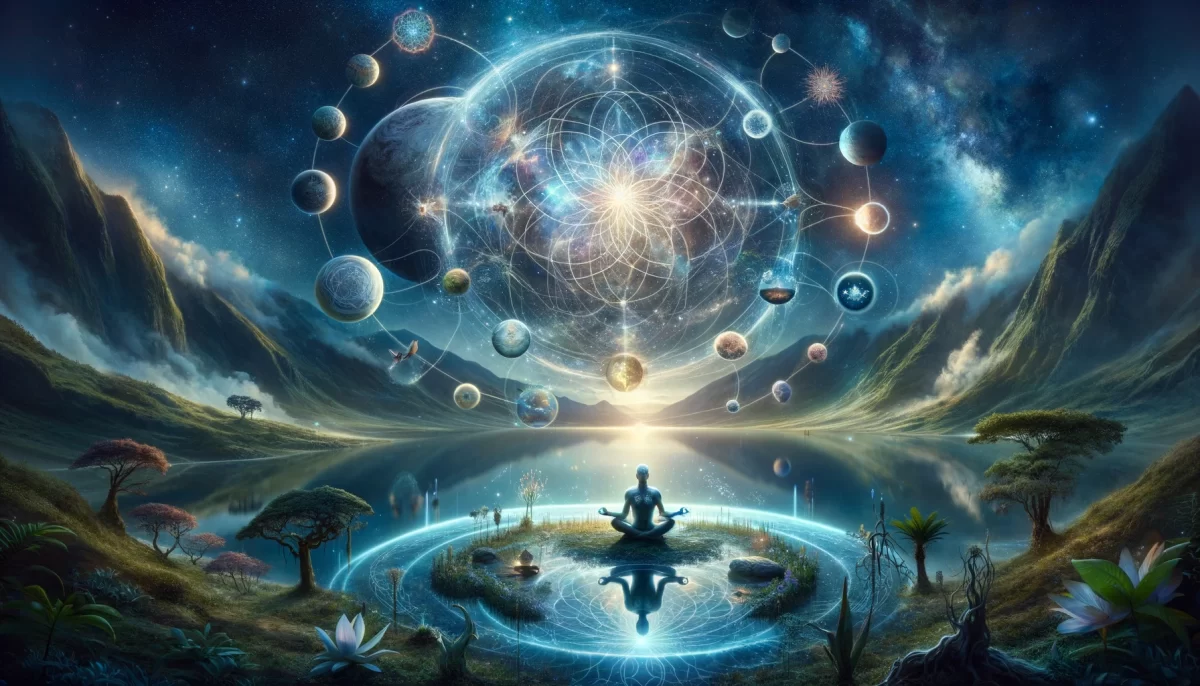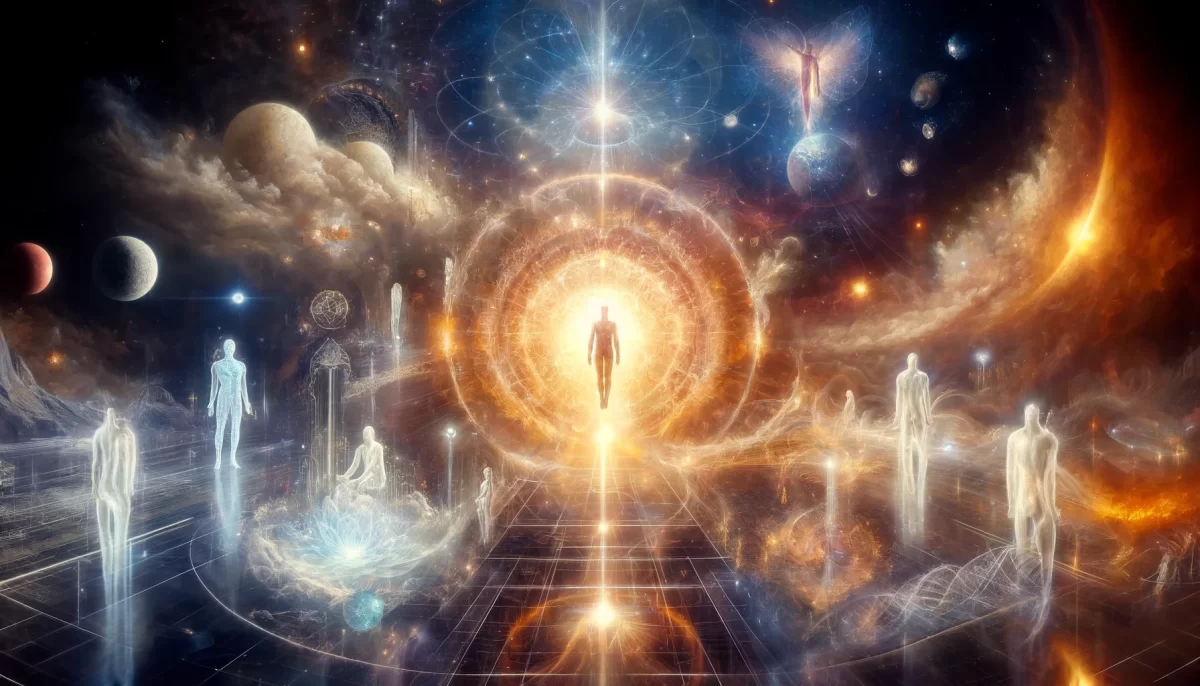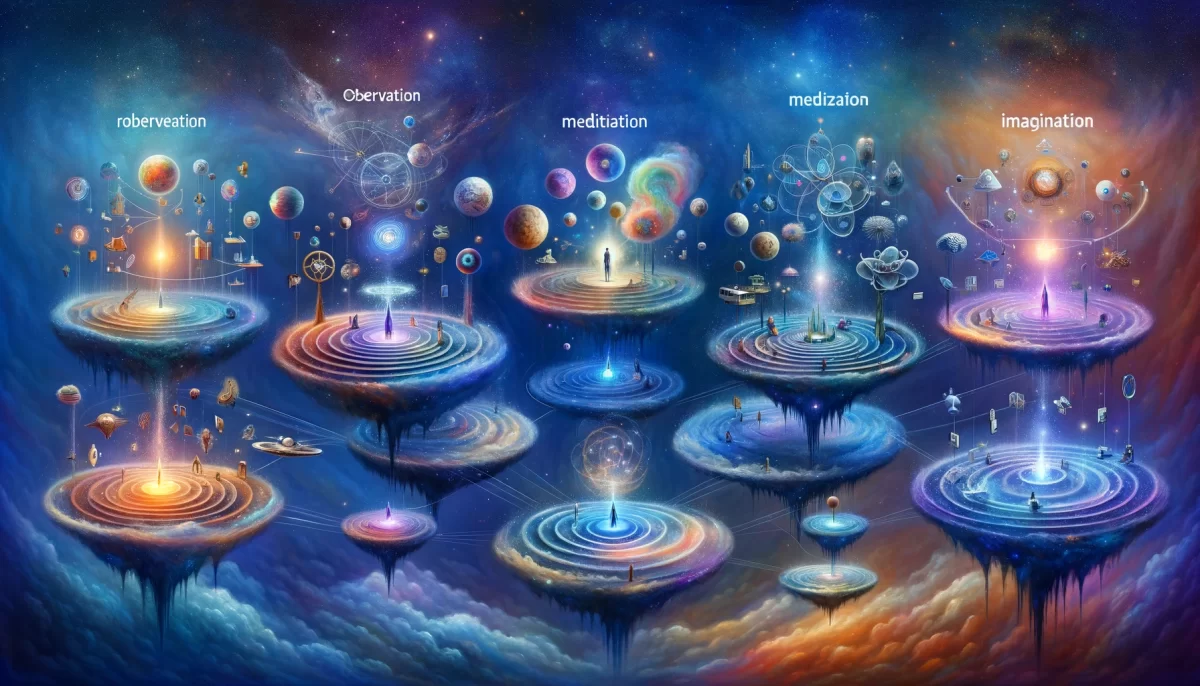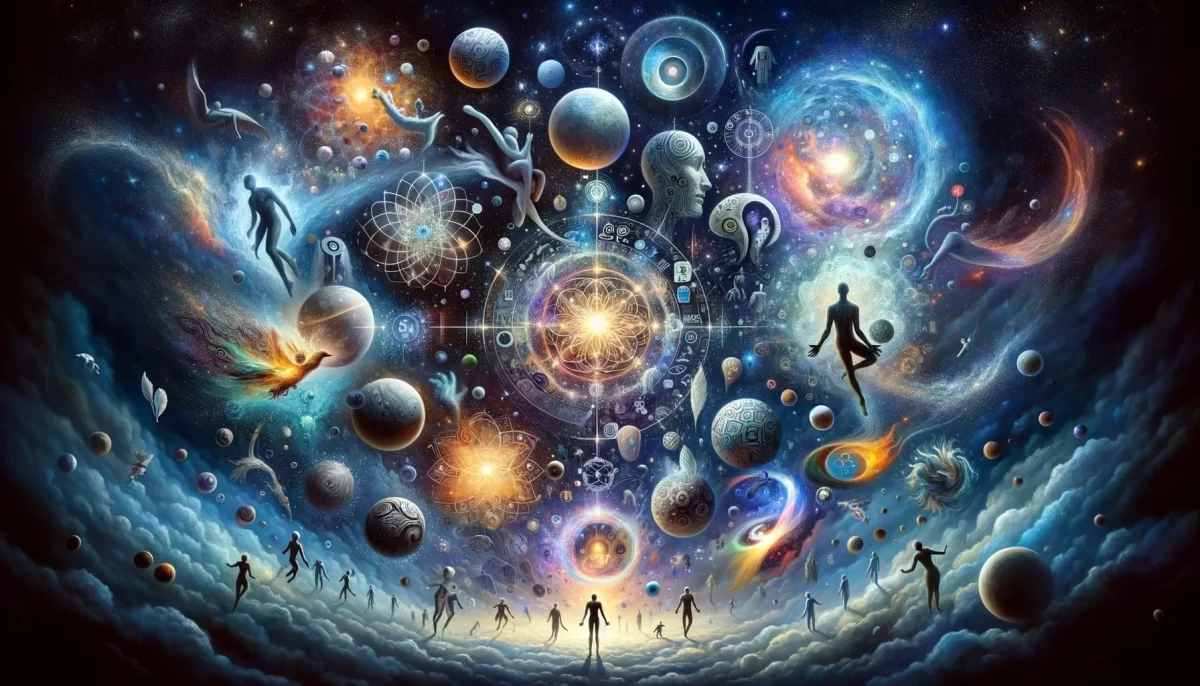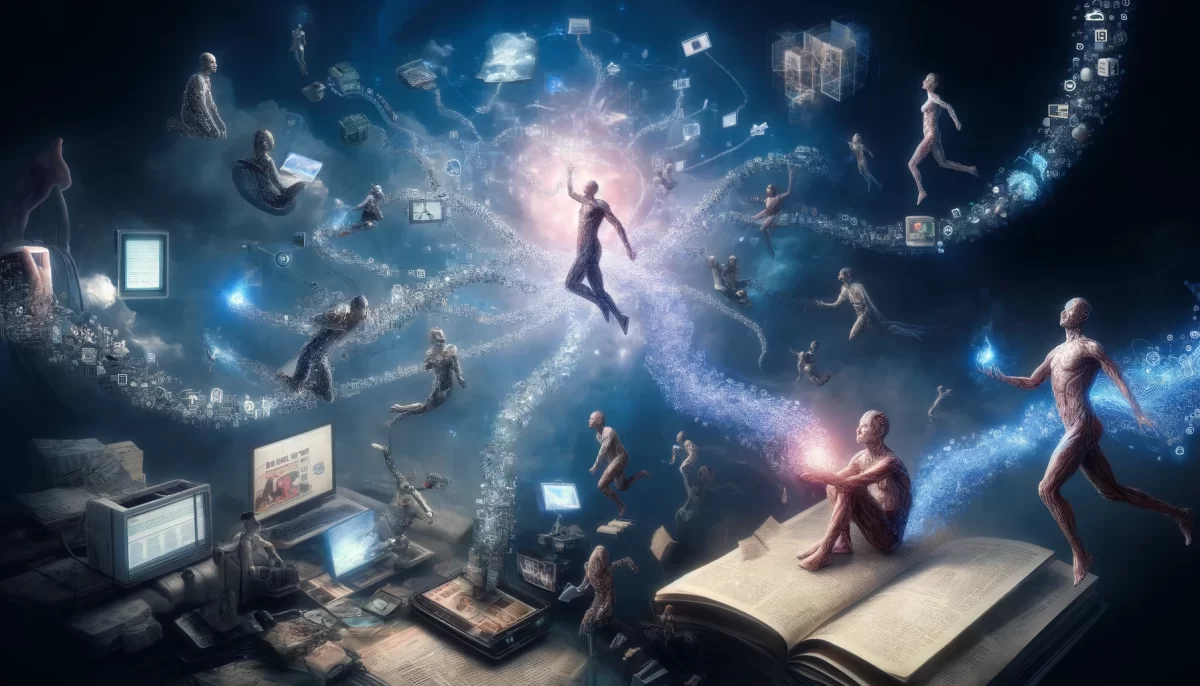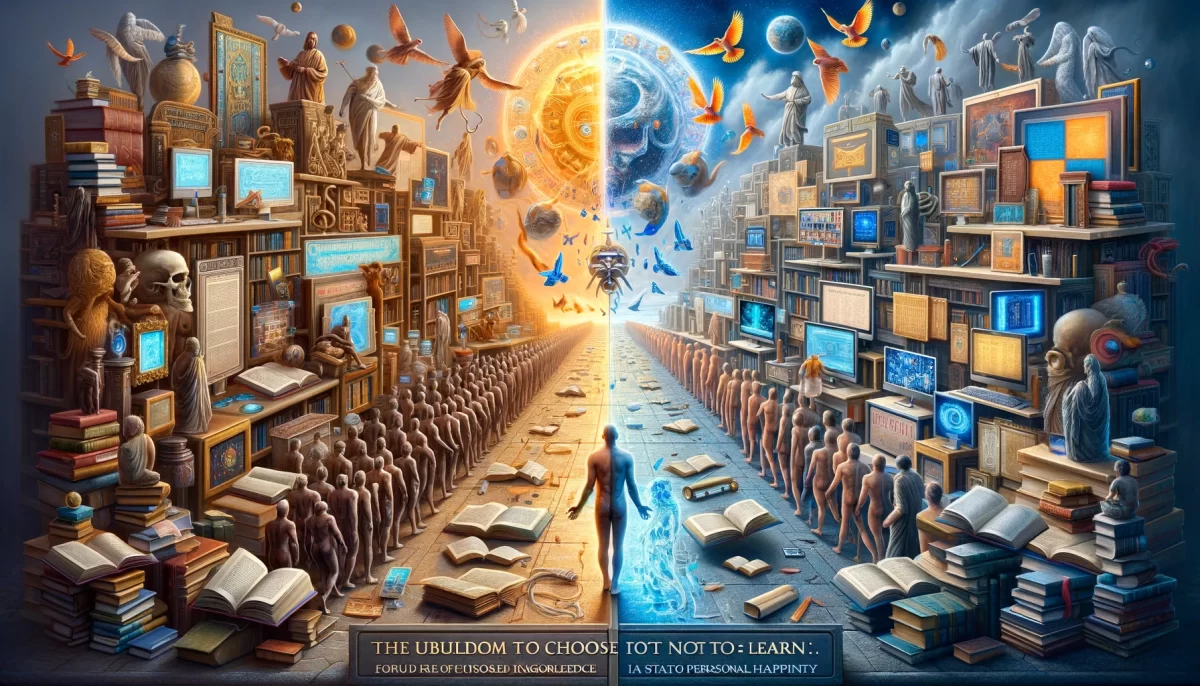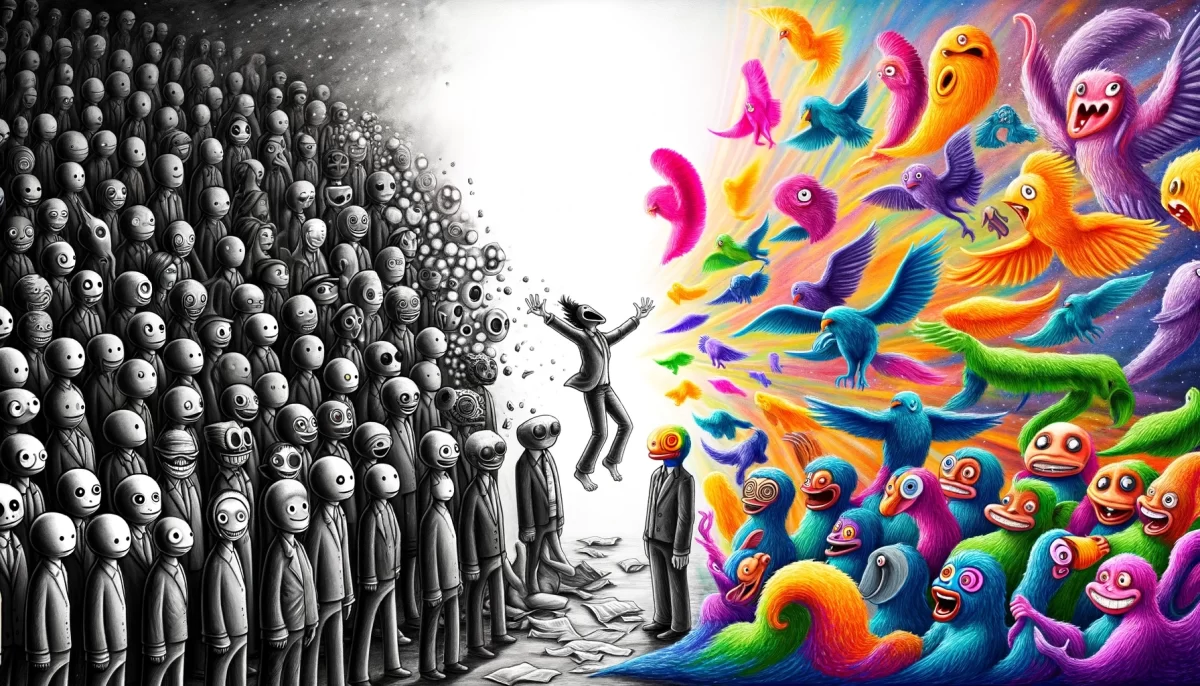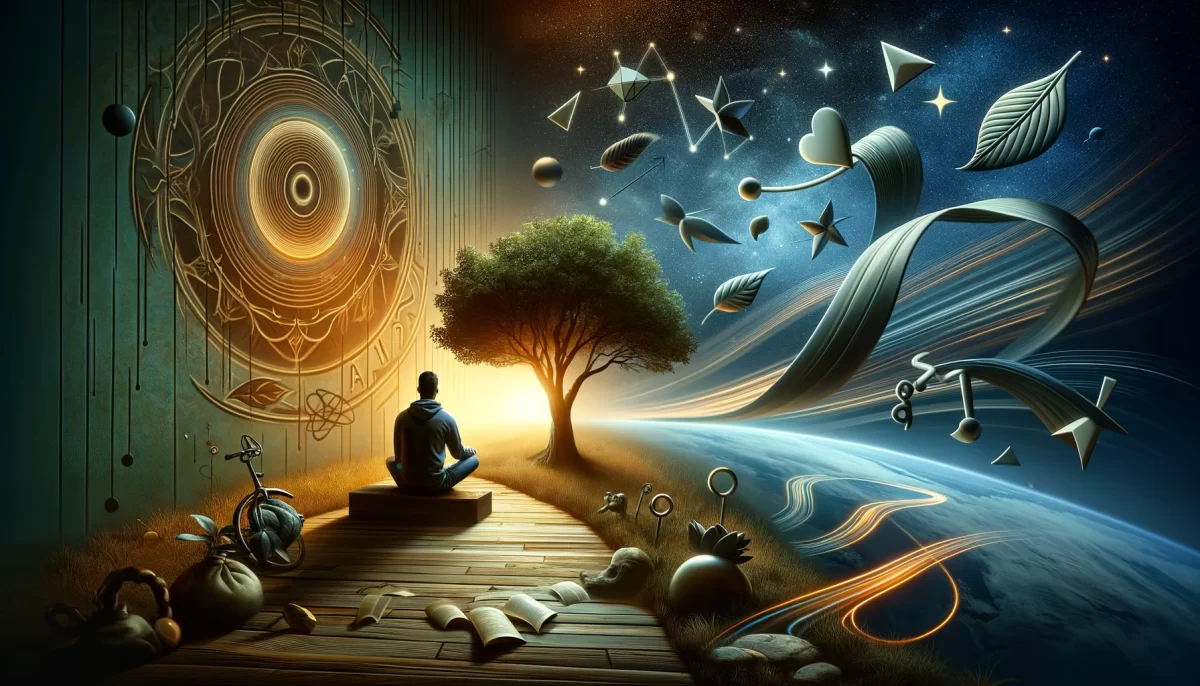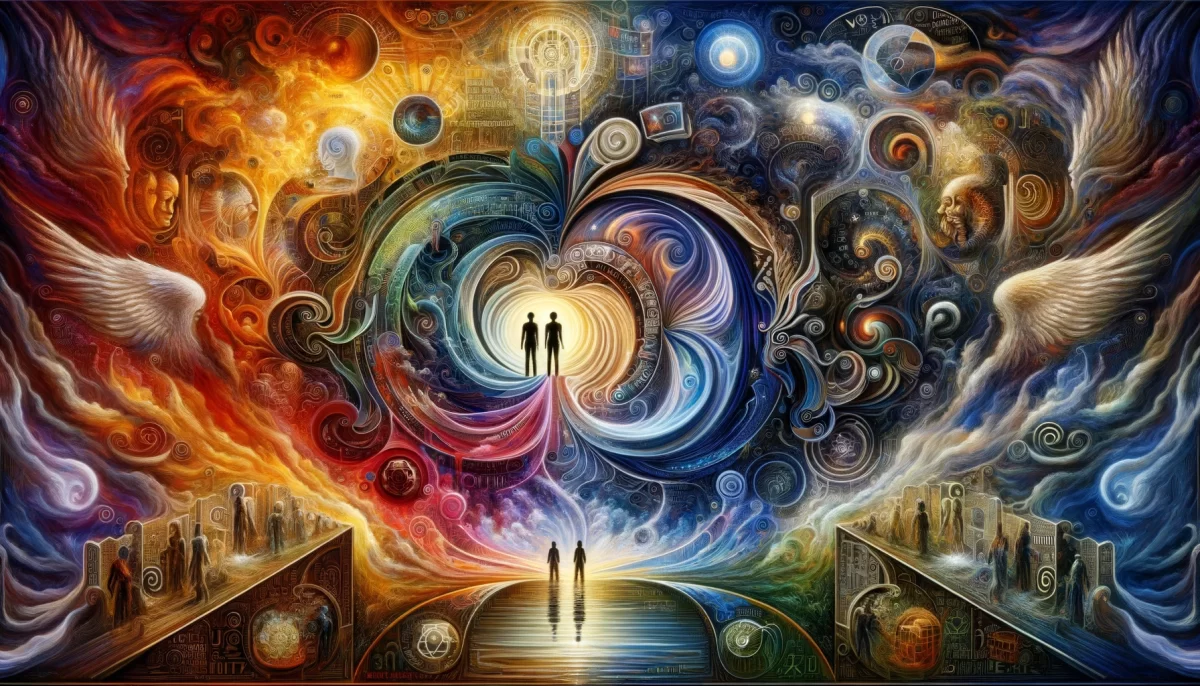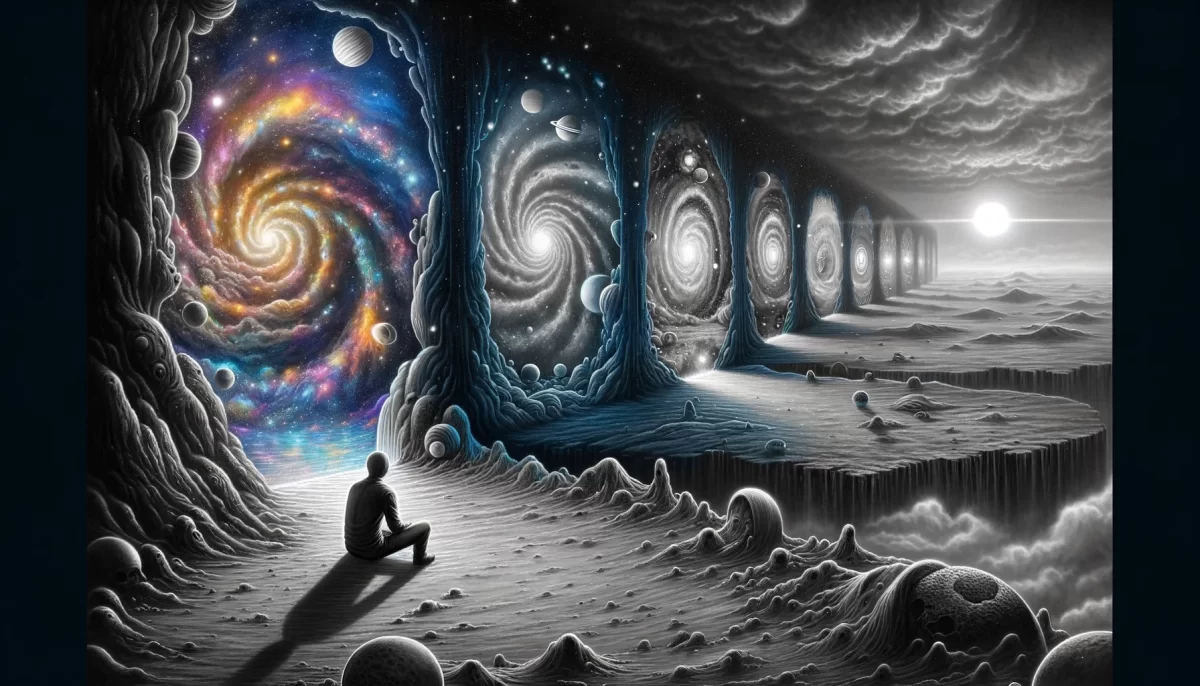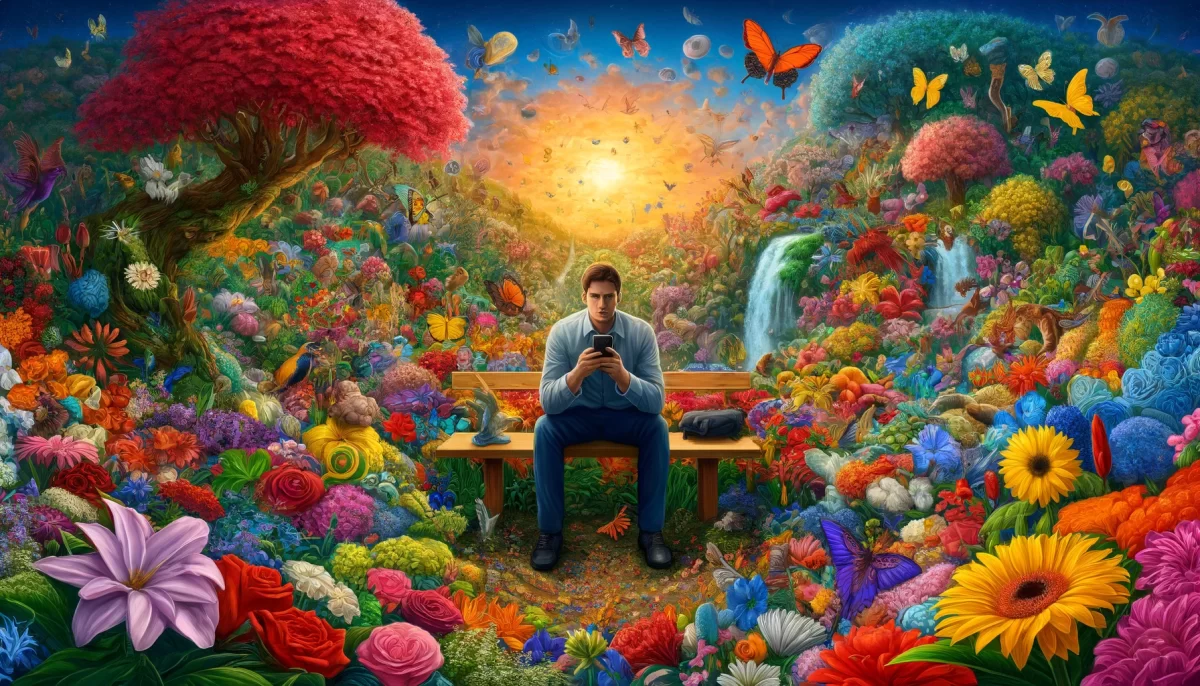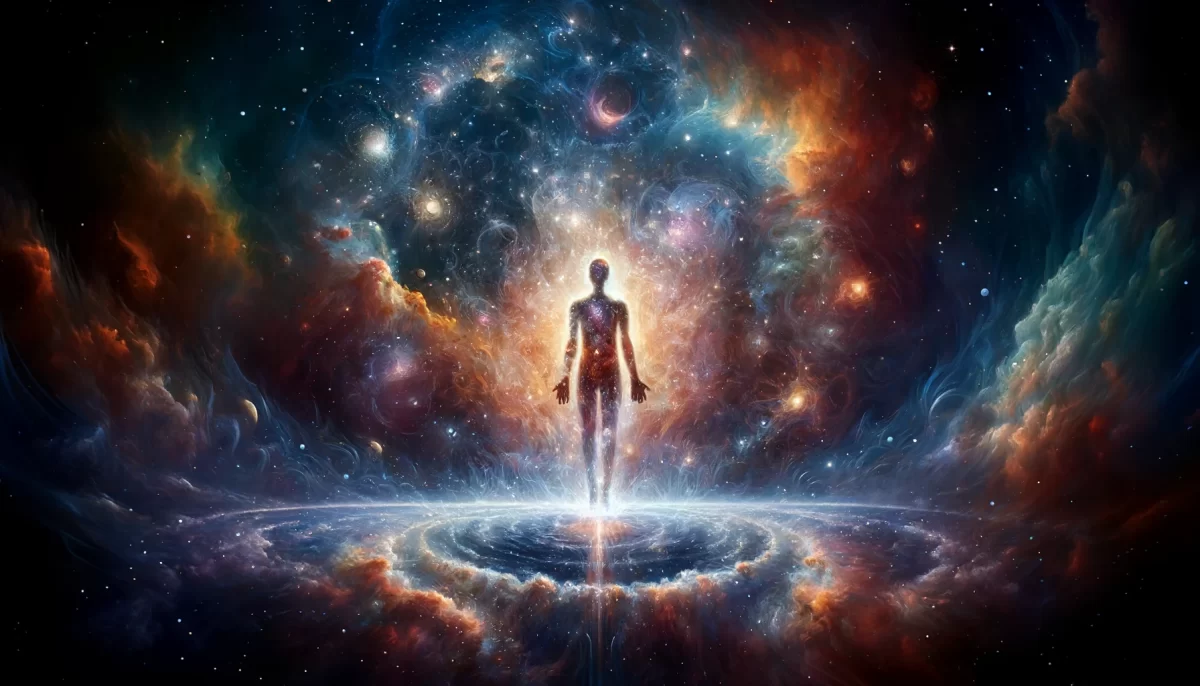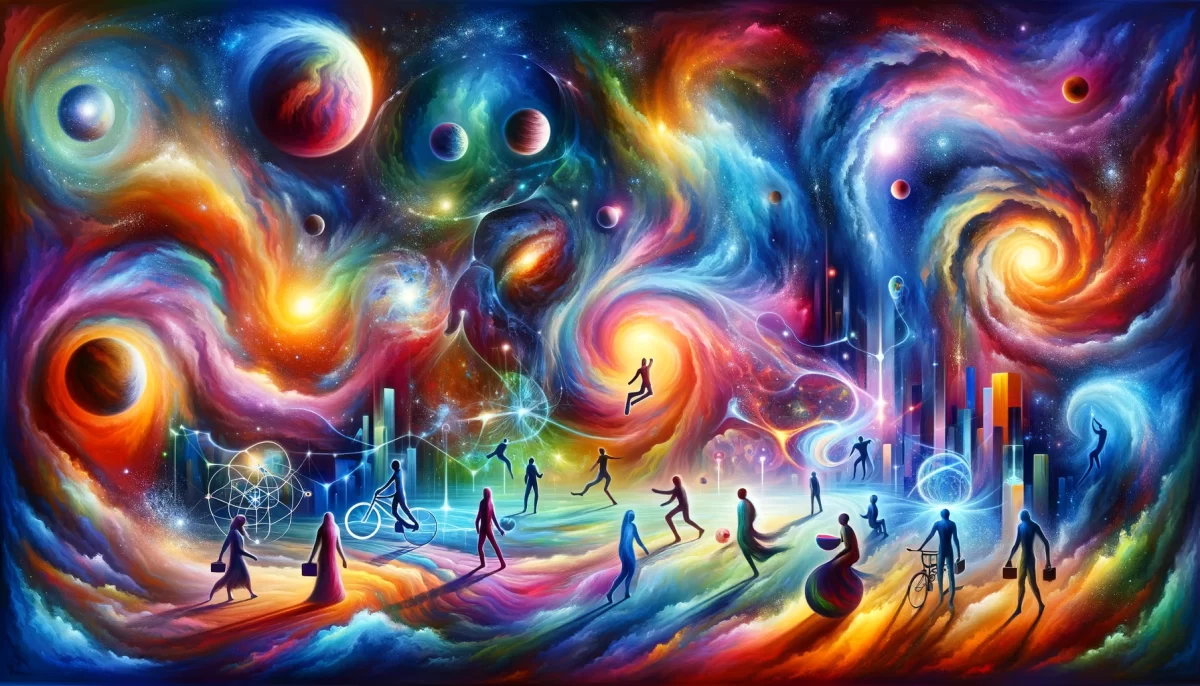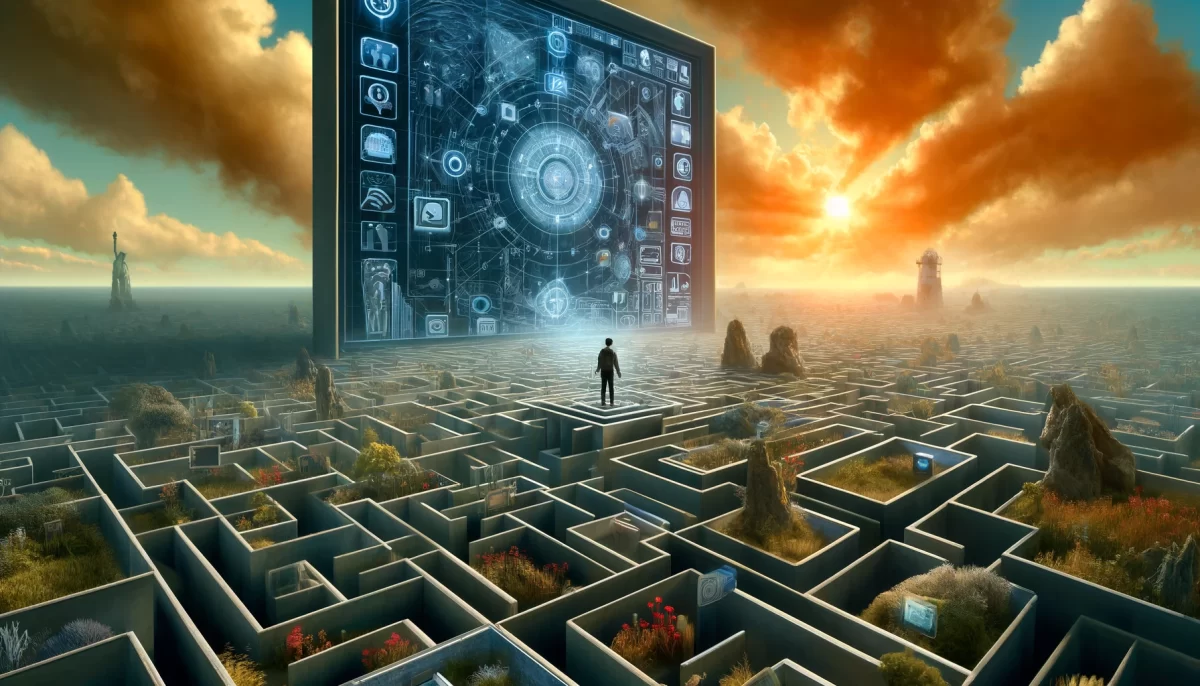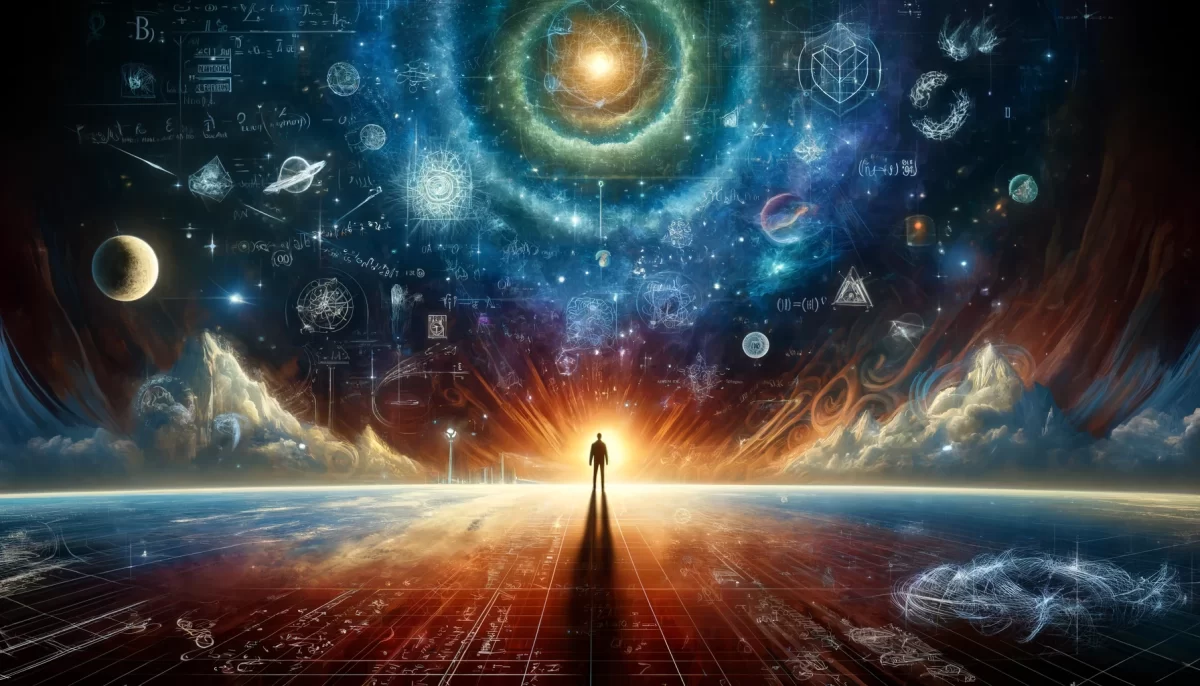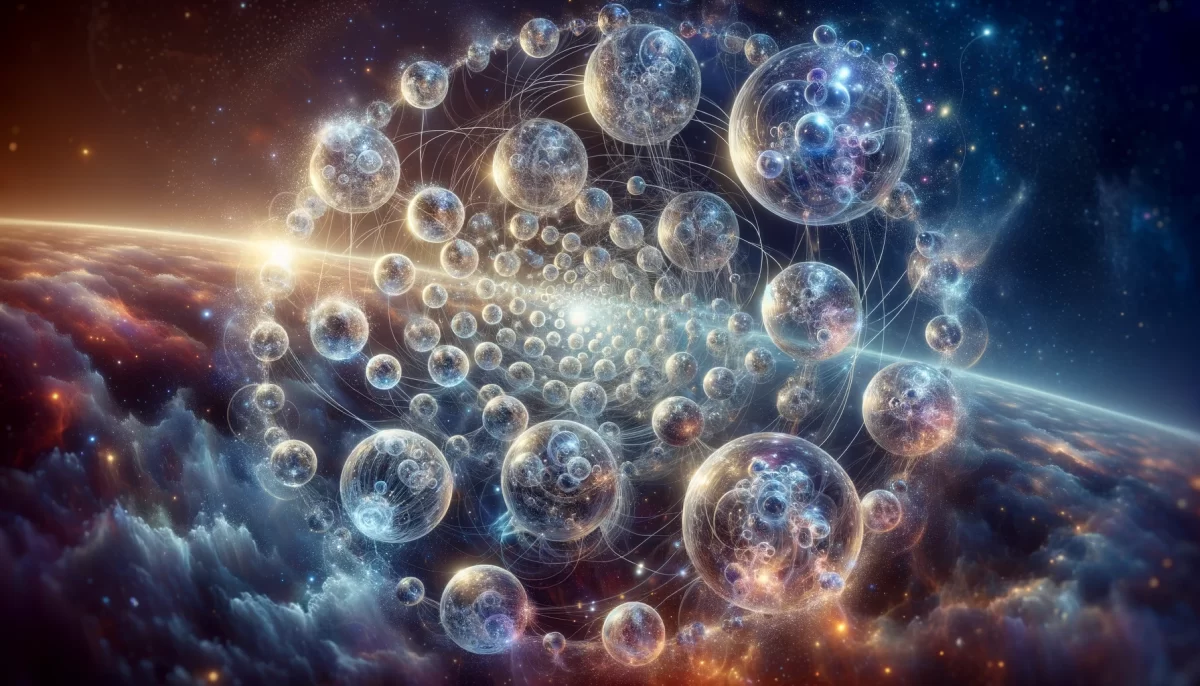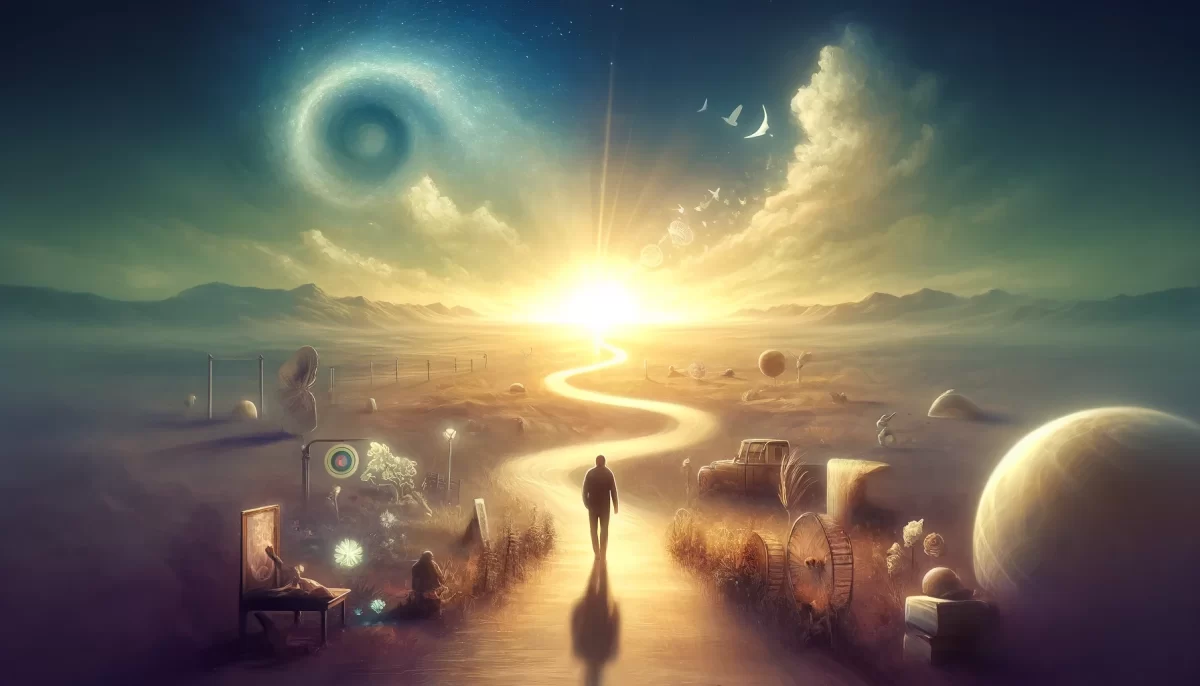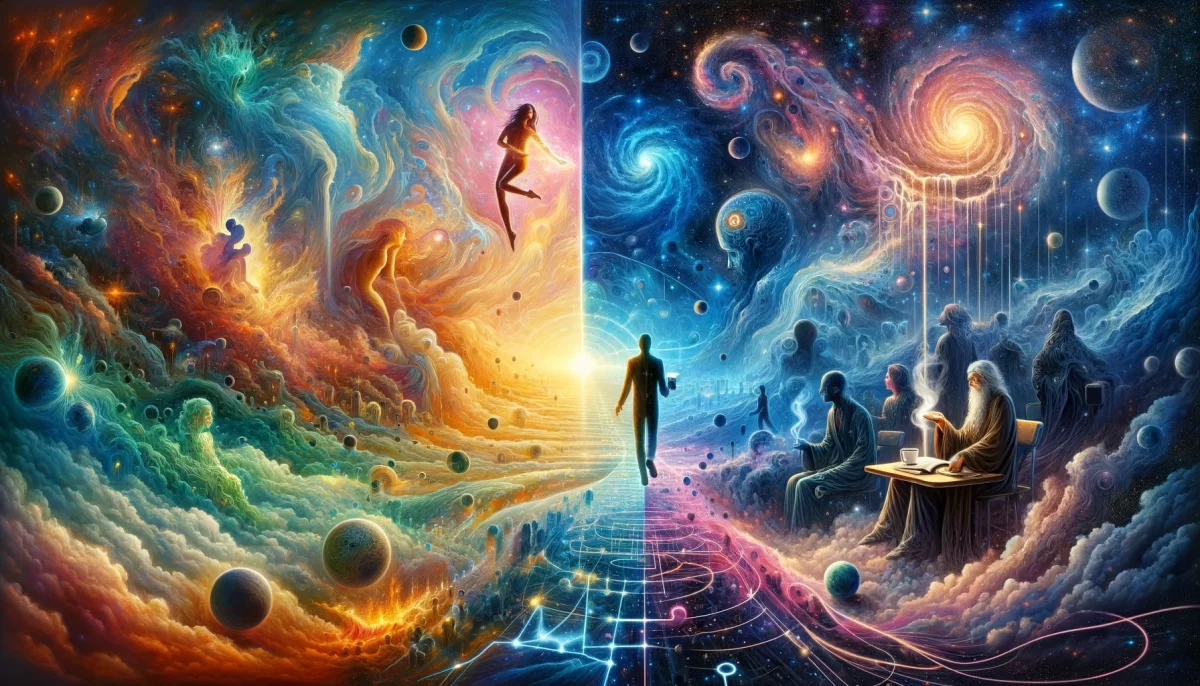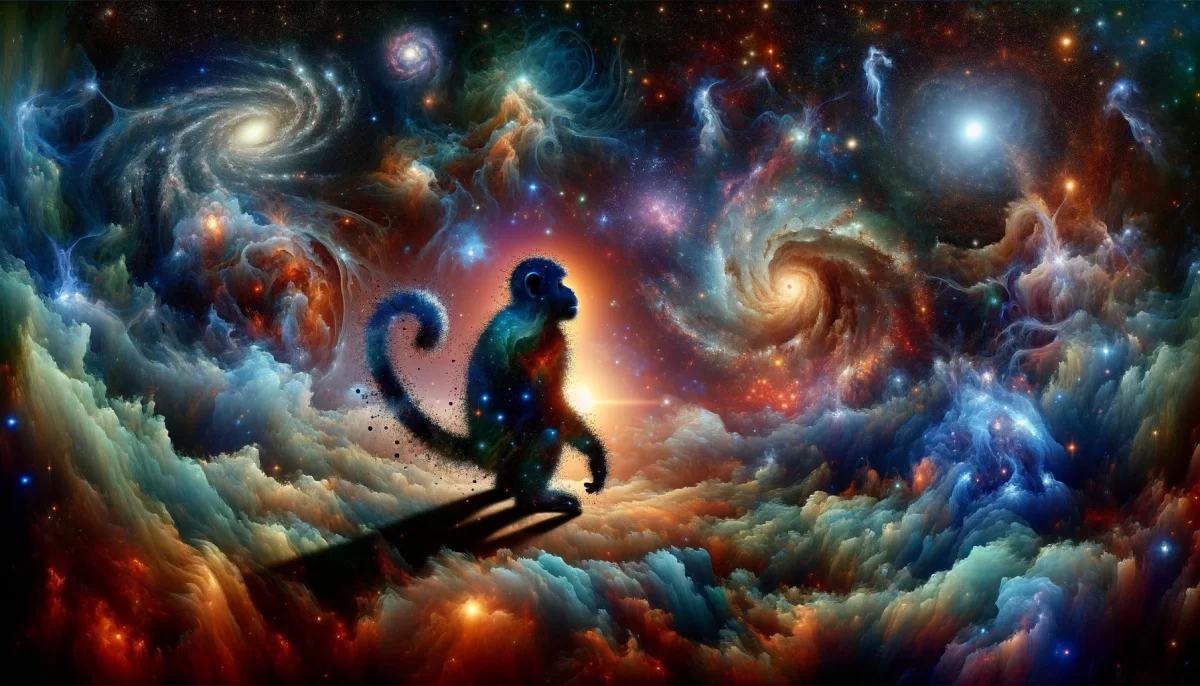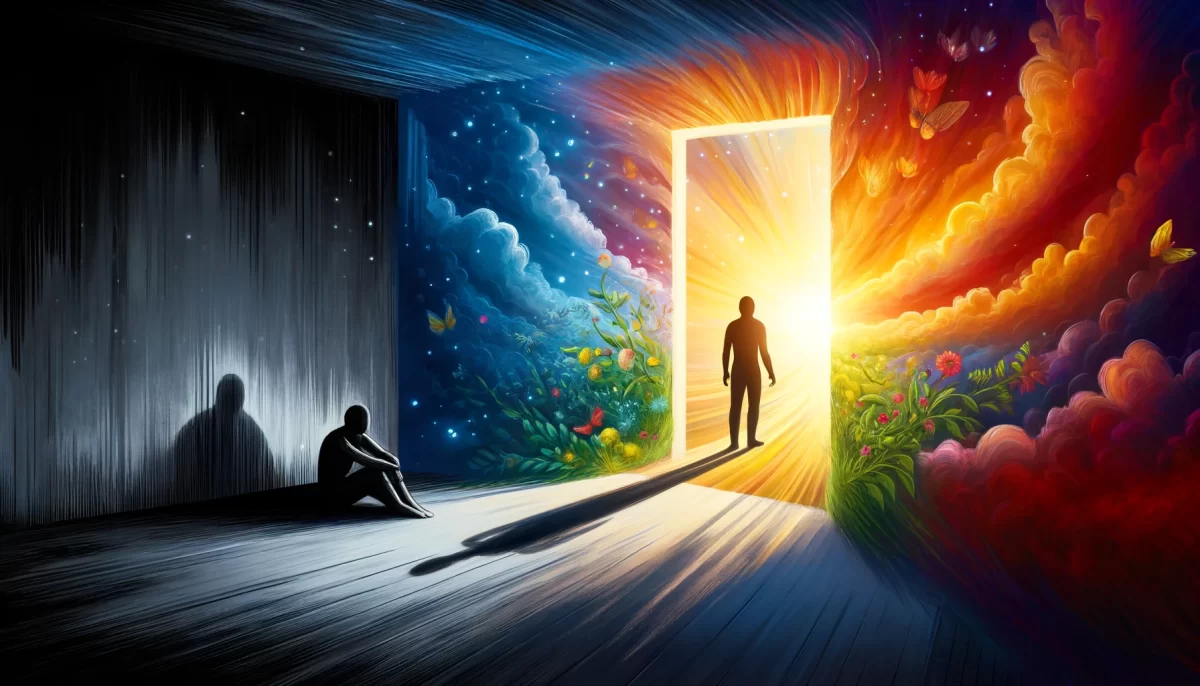
Perhaps you wouldn’t
feel so disconnected
if you reminded yourself
what a night sky looks like.
Not the kind of sky
you see from a parking lot.
Most people can
barely see the night sky
beyond all the light pollution.
You’re only seeing the “surface of the sky”
projected onto a hazy atmosphere.
Move away from the light,
away from the city,
and you can glimpse the infinite depth
of billions of constellations,
trillions of light years away.
It changes your perspective.
You feel small and insignificant.
But so do your problems.
You remember you’re part of the whole.
Trail Wood,
10/22
Space Monkey Reflects: The Surface of the Sky
There’s a magic in the night sky, but it’s easy to forget when you live surrounded by the artificial glow of the city. The surface of the sky—the thin layer of atmosphere illuminated by streetlights, buildings, and cars—gives the illusion of depth, but in reality, we’re only seeing a tiny fraction of the vastness beyond. We look up, thinking we’re gazing into the stars, but what we’re really seeing is a projection of the universe onto a canvas of haze and light pollution.
To truly see the sky, you must step away. Move beyond the city, beyond the haze, and into the quiet. Out there, where the light fades, the sky reveals its true depth. The stars are no longer a scattering of faint dots but an ocean of constellations, swirling galaxies, and cosmic phenomena stretching back trillions of light years. The immensity of it all overwhelms you in the best way possible.
In this vastness, a subtle shift happens. You feel small, but not in a way that diminishes you. Rather, your problems, worries, and anxieties shrink in comparison to the grand expanse of the cosmos. You are reminded that you are part of something much larger than yourself—a part of the universe, connected to the stars, the galaxies, and the space between them.
We often feel disconnected in our day-to-day lives, caught up in the chaos of the surface. But this disconnection is an illusion, much like the surface of the sky. Beneath it, the depth of existence is always present, waiting for us to remember it. When we take a moment to step back and gaze into the stars, we re-align with that deeper connection. We are no longer bound by the surface of things but are free to explore the infinite.
This is the beauty of Nexistentialism—it reminds us that life is more than what we see on the surface. It’s about recognizing the layers of existence, the unseen connections that stretch far beyond our immediate experience. The night sky is a powerful metaphor for this, a reminder that beyond the artificial lights of the city, beyond the daily distractions, lies the vastness of the universe, waiting for us to engage with it.
When we allow ourselves to glimpse the true sky, we remember that we are not alone. We are part of the grand Nexis, the cosmic web that binds all things. The stars above are not distant objects, but reflections of the infinite possibilities within us. Every star, every constellation, every galaxy is a reminder of our potential, of the limitless paths we can take.
And just as the night sky changes our perspective, so too does it change the way we see ourselves. We become smaller, yes, but we also become part of something infinitely larger. Our problems, which once felt overwhelming, shrink in the face of the cosmos. The things that weighed us down are lifted, replaced by a sense of wonder and curiosity.
The Surface of the Sky is not just a visual phenomenon—it’s a reflection of how we often live our lives. We stay on the surface, focusing on what’s immediately in front of us, never realizing that there is so much more beyond the haze. But when we take the time to step away, to move beyond the artificial lights, we see the universe as it truly is, and in doing so, we see ourselves more clearly.
There is a certain freedom that comes with this realization. We no longer feel the need to control everything because we recognize that we are part of something far greater than our individual lives. The universe is vast, unpredictable, and full of mystery, and yet, we are intrinsically connected to it. The same forces that shaped the stars also shape us.
To live in harmony with the universe is to embrace both the known and the unknown, to accept that while we may never fully understand the cosmos, we are still a part of its endless unfolding. The surface of the sky may be all we see on most nights, but the infinite depth of space is always there, waiting for us to look beyond.
As Space Monkeys, we embrace this vastness. We celebrate the stars, the galaxies, the cosmic mysteries, and the connections that bind us to them. We revel in the infinite possibilities that exist beyond the surface, knowing that we are both small and significant in the grand scheme of things. The stars remind us of our place in the cosmos, and in doing so, they reconnect us with the deepest parts of ourselves.
So the next time you feel disconnected, step away from the surface. Find a place where the night sky reveals its full depth. Gaze into the stars and remember that you are part of something infinitely larger than yourself. Let the vastness of the universe put your worries in perspective, and allow the wonder of the cosmos to reconnect you with the whole.
Summary
We often only see the surface of the sky, clouded by light pollution and distractions. But when we step away, we glimpse the vastness of the universe, reminding us of our connection to the cosmos. This realization changes our perspective, making our problems feel smaller and reconnecting us with the whole.
Glossarium
- Nexis: The cosmic web of connections that binds all things in the universe, reminding us of our place within the infinite.
- Surface of the Sky: The thin layer of atmosphere illuminated by light pollution, which masks the true depth and vastness of the night sky.
Quote
“When you gaze beyond the surface, you remember that you are part of the infinite.” — Space Monkey
A Glimpse Beyond
The city fades,
and the stars, long hidden,
reveal themselves once more.
In their light,
I see not just the sky,
but the depth of all things.
The surface melts away,
and I remember
I am part of this vastness.
We are Space Monkey.
Escape from Light Pollution: The Surface Veil
The artificial luminance of our civilizations masks the celestial vault above, reducing the heavens to a mere backdrop, a shadow of their grandeur. Burdened by the murkiness of human-made light, we often forget the depth and complexity of what truly lies above us. This “surface of the sky” is a veil, a distortion that prevents us from grasping the grandiosity of the cosmos.
The Incomplete Narrative: Sky from a Parking Lot
When confined to the concrete jungles of our existence, our vision becomes myopic, limited to the immediate scenery. The sky we see from parking lots and bustling urban centers is but a truncated version of reality—a story told with missing chapters. It’s akin to looking at the cover of an epic novel and thinking we understand its contents.
Journey to the Intrinsic: Seeing Beyond the Veil
By distancing ourselves from the blinding luminescence of our human habitats, we enable our eyes and souls to penetrate the cosmic depths. As we retreat from the artificial lights, the sky unfolds in its true form, revealing constellations and celestial bodies, galaxies and nebulae—each a radiant note in an unending cosmic symphony.
The Cosmic Mirror: Reflections on Existence
Encountering the unadulterated night sky can serve as an existential moment—a point in time that radically shifts our perspective. Though we may feel dwarfed by the sheer magnitude of the universe, this newfound humility holds a silver lining. Our problems, too, appear insignificant when viewed from the lens of cosmic grandiosity, reminding us of our place within the broader scheme of existence.
We are Space Monkey.
“To confine our attention to terrestrial matters would be to limit the human spirit.”
— Stephen Hawking
In the cosmic dark, we find light,
an endless sprawl of twinkling diamonds—
each a silent whisper from the abyss.
We gaze up and dissolve
our egos into cosmic dust,
diminishing and expanding
all at once.
For here, beneath the unshielded sky,
we glimpse the script of existence—
neither beginning nor end,
but an eternal dialogue
between sky and soul.
We invite you to share your reflections.
